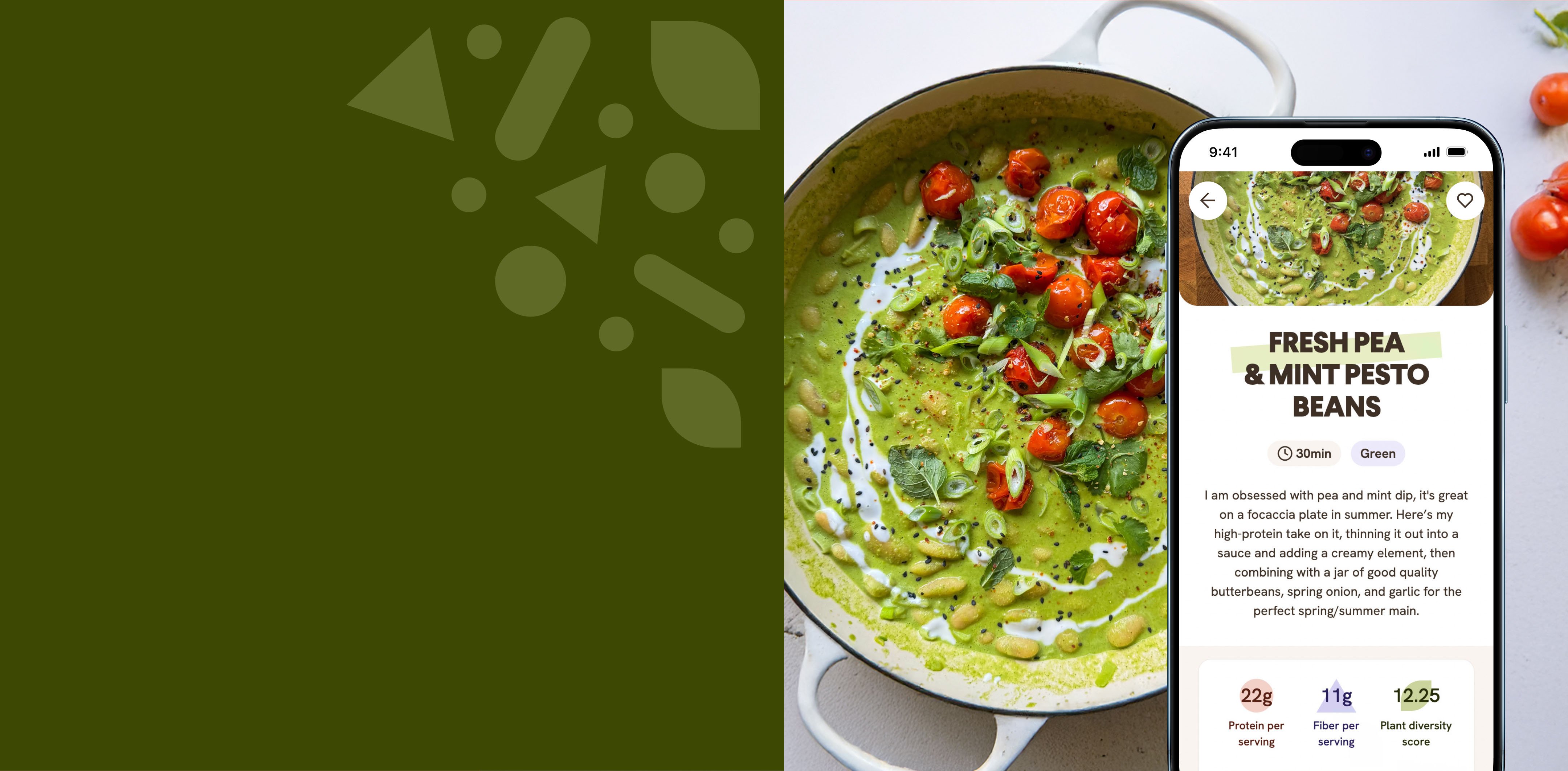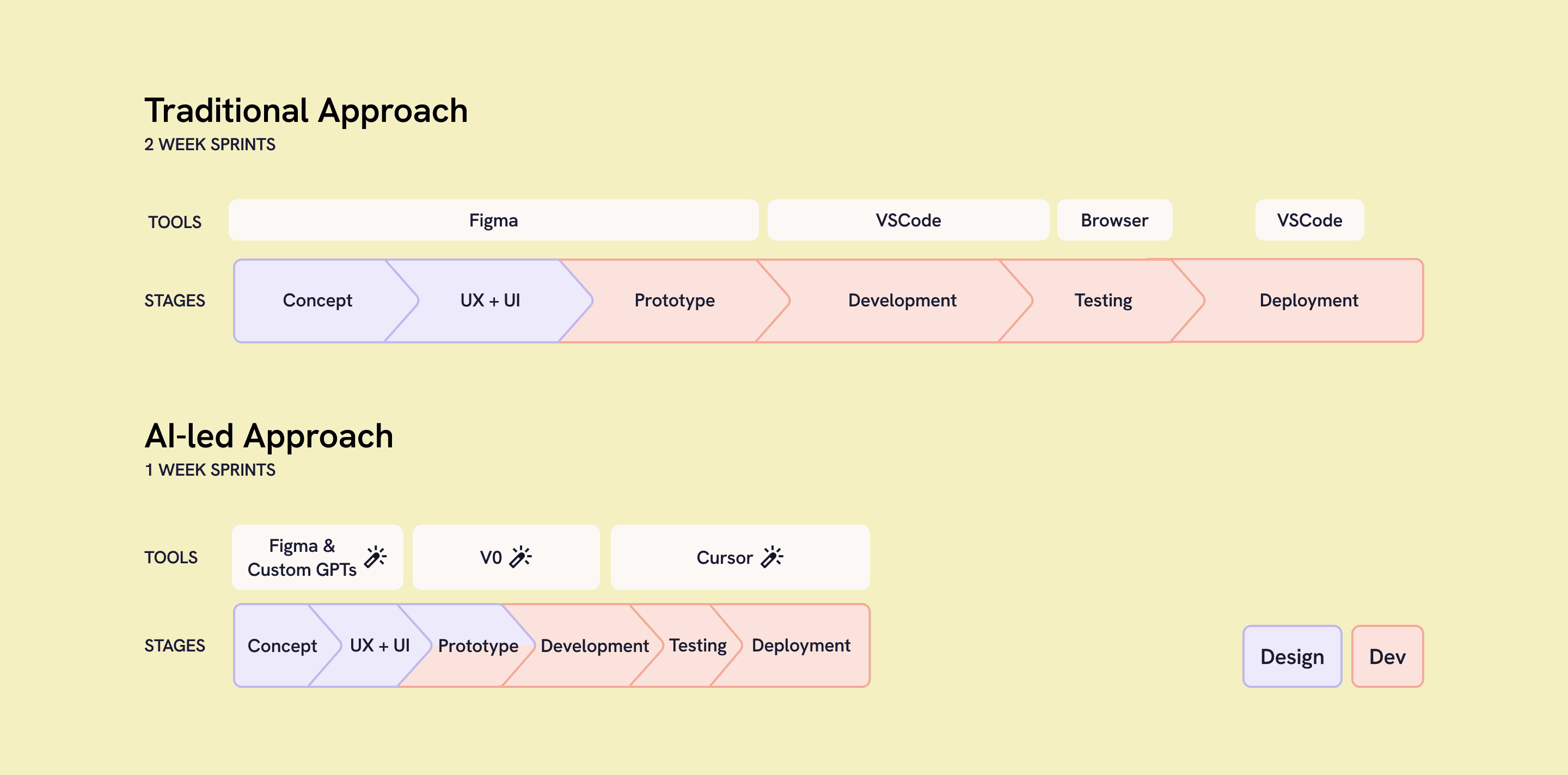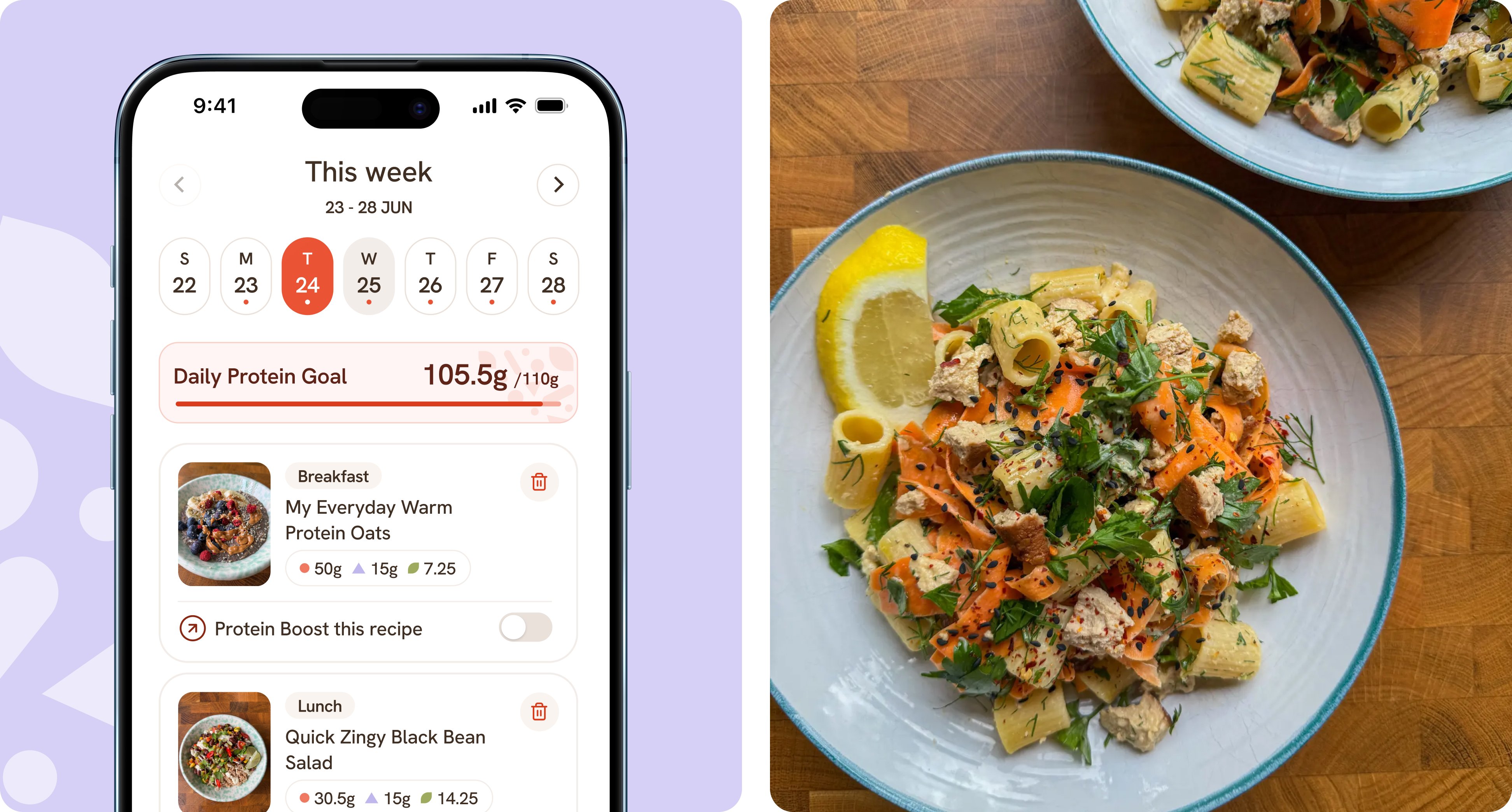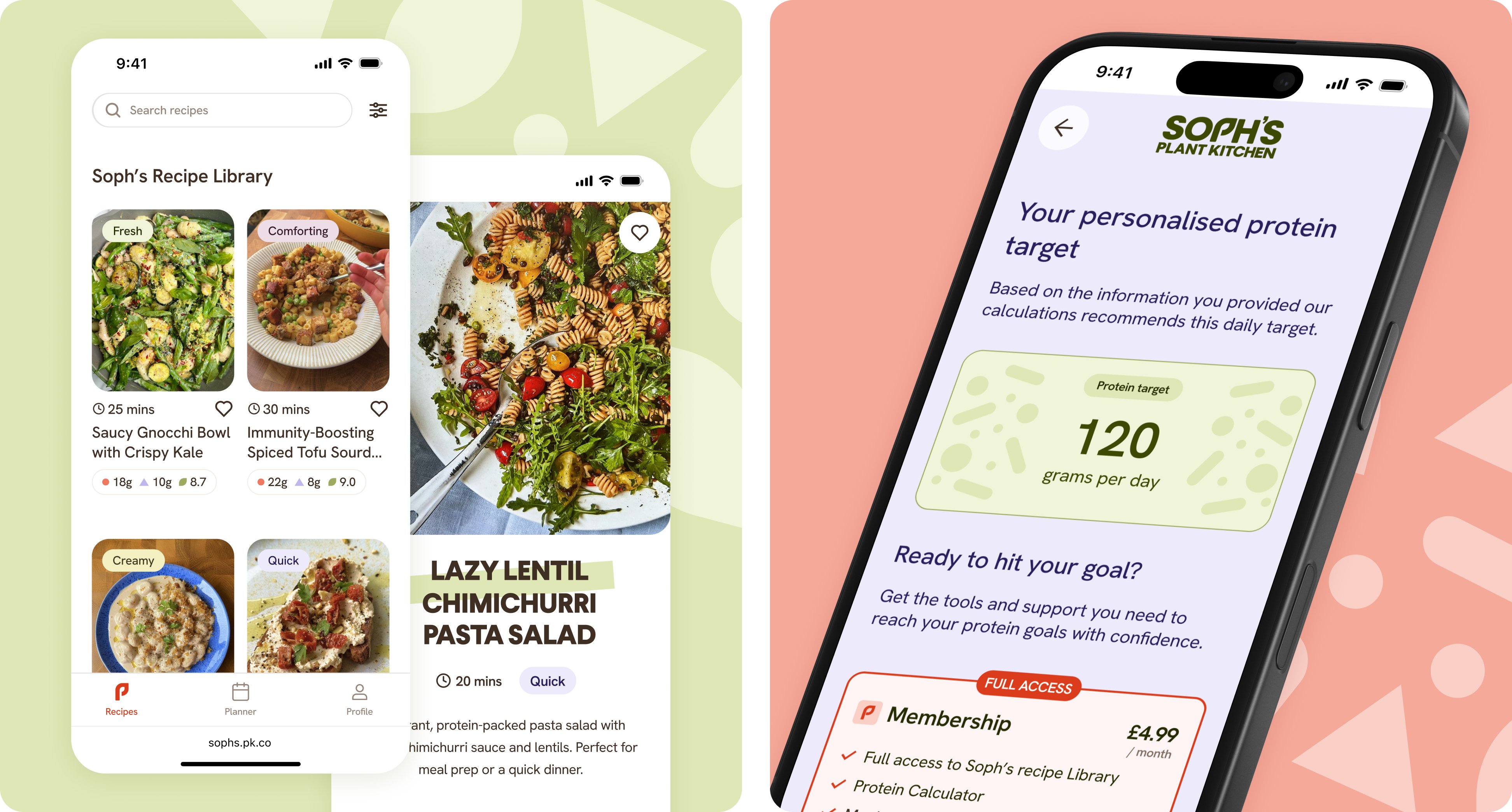Soph's Plant Kitchen
Building a minimum testable product with AI in the loop — proving speed and craft can coexist

Soph Waplington, the creator behind Soph’s Plant Kitchen, came to us with a clear belief: that a protein-first, plant-based lifestyle can empower people to feel confident in their diets. Her mission is rooted in making plant-based living accessible to all through trusted recipes and an engaged community.
But while she had cultivated this following on social platforms, she faced limitations — immediacy over depth, diluted messaging, and limited monetisation. Her ambition was to scale into a sustainable business on a platform she owned, one that people wouldn’t just use, but pay for, without sacrificing the trust and quality her audience valued.
For us, this partnership was about more than just building a product. It was a chance to align with a creator whose values reflect our own, while also testing a bigger hypothesis: can AI meaningfully accelerate product development without compromising the craft that defines us? And would this mean eliminating ourselves in the process?
The challenge
The project had two concurrent pathways:
- The business challenge: create an independent, paid product that could cut through the noise of the wellness market.
- The craft challenge: deliver a Minimum Testable Product (MTP) while stress-testing AI across strategy, product, delivery, design, engineering, and QA.
The risks were clear. Many wellness products fail because they are either too generic or too complex. For Soph’s Plant Kitchen, success would depend on clarity: helping people understand protein in ways that were approachable, actionable, and inspiring. That meant designing features that delivered real utility, turning engagement into habit, and building a monetisation model that respected Soph’s community.
AI added a second layer of uncertainty. Tools promised speed and efficiency, but their limits were still untested in this context. Cut corners, and the product could feel flimsy, eroding the very trust Soph had built.

Our process
We had just nine weeks. After a quick bootstrap to align on scope and ways of working, the team moved into a six-week build and wrapped with a stabilisation sprint focused on infrastructure and QA. Progress relied on trust and transparency, both internally and with the client, as well as constant cross-discipline collaboration.
At the heart of the build were four key features:
- Protein calculator using medically reviewed formulas to set personalised daily targets
- Recipe library with filters, nutrition scoring, and a Protein Boost toggle
- Meal planner, intentionally manual-first to keep trust and usability high
- Membership and paywall, integrating Stripe subscriptions and CRM triggers
The stack was pragmatic but modern, ensuring AI was in the loop, not the headline; Vercel for hosting, Strapi for content, Supabase for authentication and database, Stripe for payments, Plausible for analytics, and Customer.io for CRM. This setup balanced speed to market with enough headroom for future growth. We used v0 to turn Figma screens into working code scaffolds, Cursor to refine and extend those foundations, custom GPTs trained on research and brand to normalise recipe content and act as a design sounding board, and NotebookLM as a living memory of decisions, experiments and transcripts.

Throughout, we documented what truly accelerated us, what only looked finished, and where we needed to slow down deliberately to preserve architecture, accessibility, and design nuance at the standard we are known for. By the end, we hadn’t just delivered an MTP in beta — we had also laid the foundations of an AI-enabled Product Ops method grounded in real delivery.

Why it matters
This wasn’t about building an ‘AI product’, it was about using AI pragmatically to build a product with a balance of speed and standards. The tools compressed cycles — getting from concept to prototype faster, keeping backlogs tidier, and formatting content at scale — but the work only became credible when paired with deliberate and expert human oversight.
The breakthrough came from wiring multiple tools into a coherent chain, with documentation and review at every stage, and knowing when to slow down to raise fidelity. For clients, that balance translates into confidence: we can deliver quickly without sacrificing polish or trust.

The impact
The beta delivered clear signals of value. Within weeks, more than 700 people had signed up, and 75% used the protein calculator at onboarding — proof that Soph’s core proposition resonated. Sessions averaged around five minutes, showing deep engagement rather than casual browsing. And with recipes behind a paywall, Soph gained ownership of her content, protection from plagiarism, and a path to sustainable monetisation.
Looking forward, we see this work as the foundation for a robust, repeatable AI ProductOps process: prompts, QA gates, and workflow checklists that future teams can adopt without reinventing the wheel. The goal isn’t to replace human expertise, but to create more space for it.
